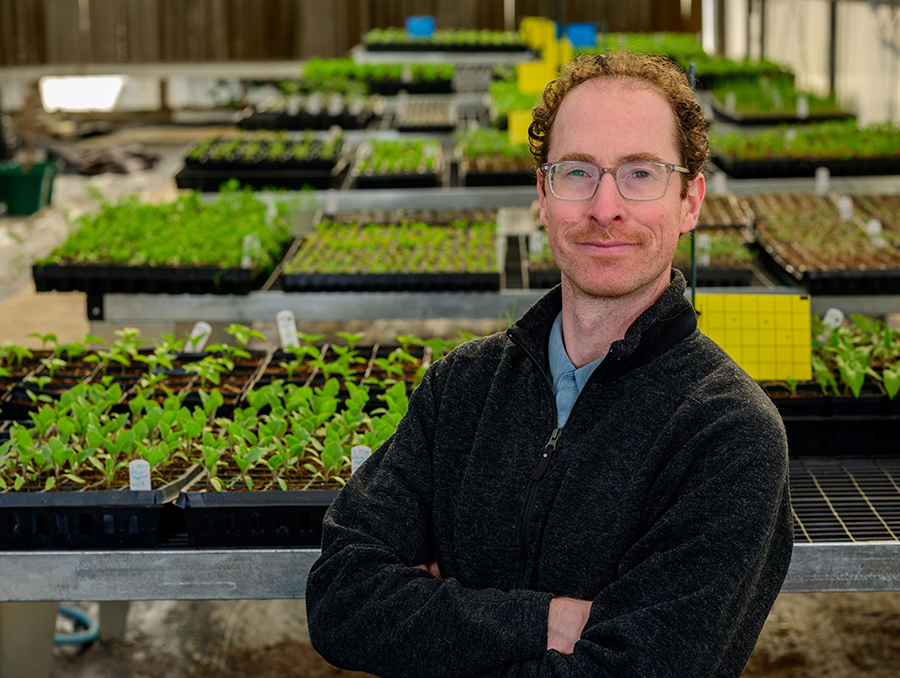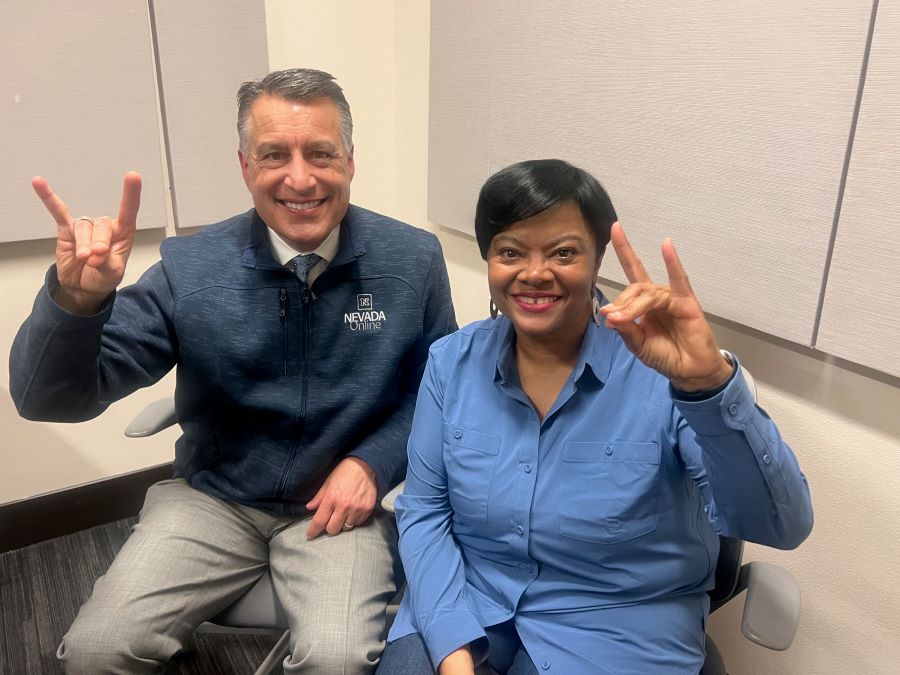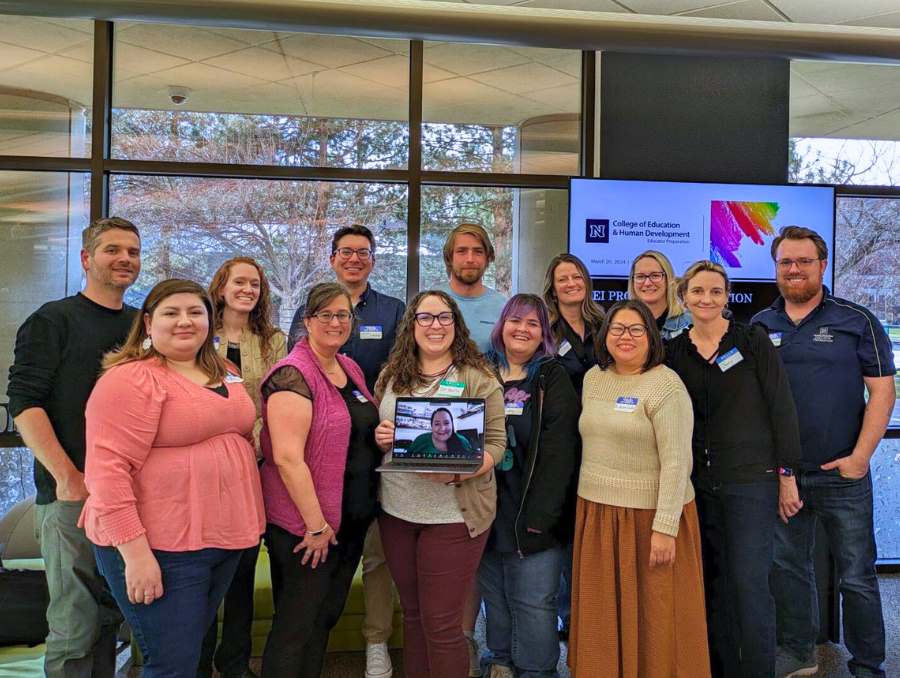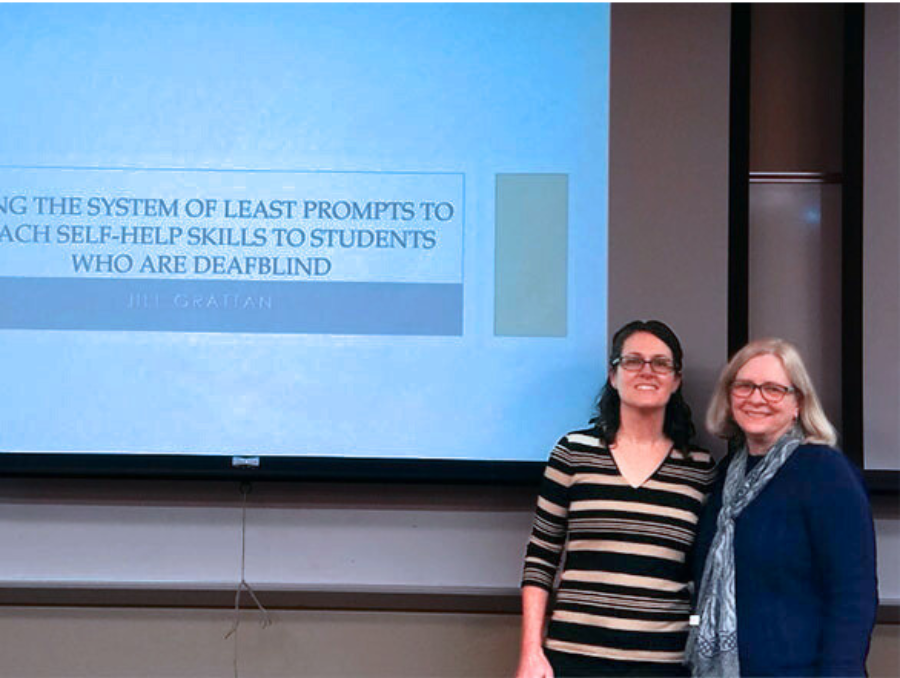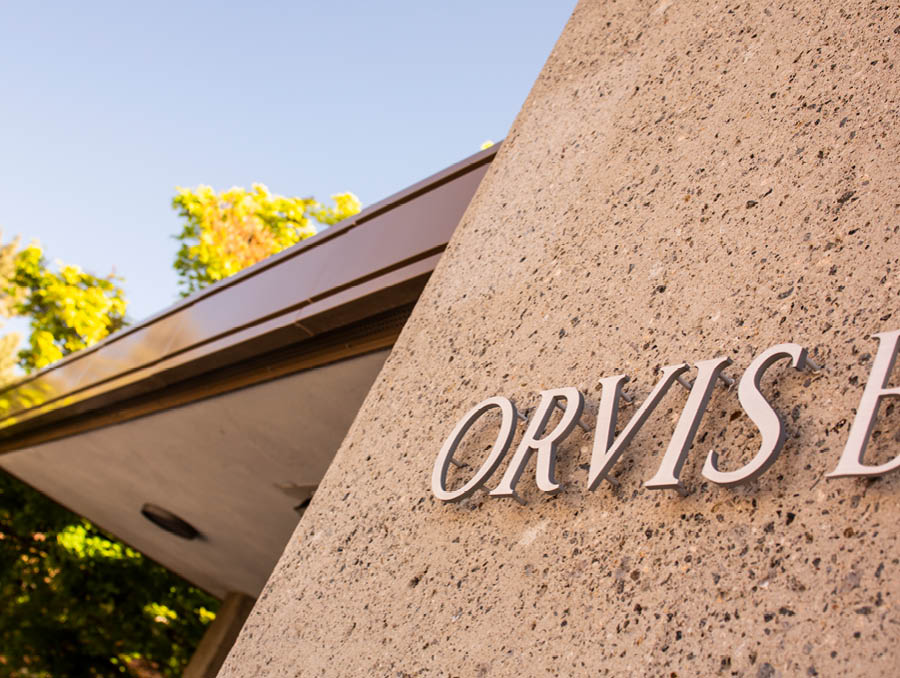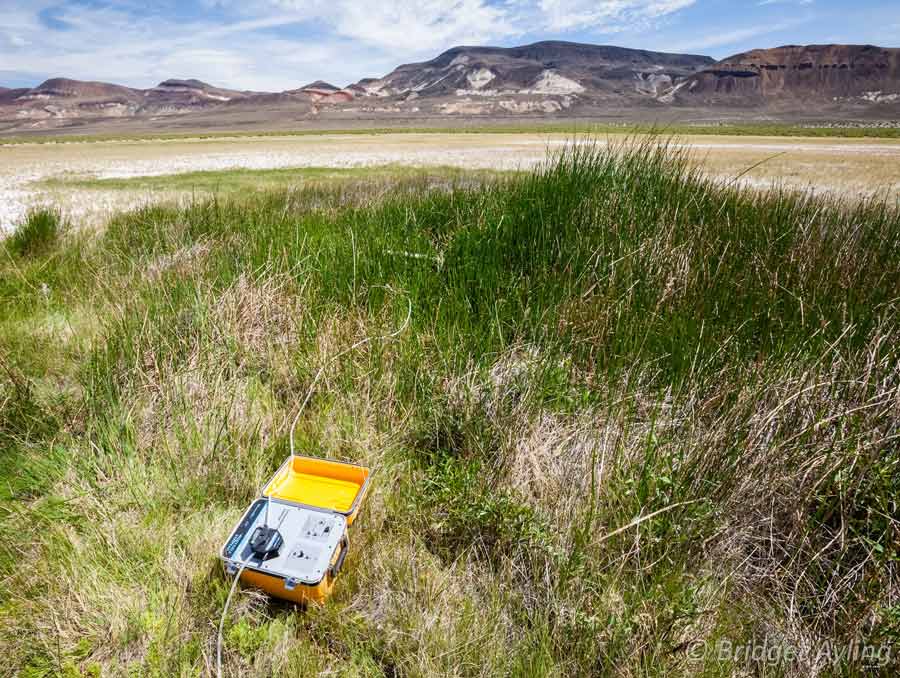Saying that "it's going to take a great deal of effort by all of us," President Marc Johnson stressed several ways the University of Nevada, Reno can utilize new, less state-dependent revenue sources in an effort to re-invest in a promising University future during remarks he made Thursday in a town hall meeting.
"Our 'new normal' is going to require the effort of each and every one of us to achieve," Johnson told a crowd of about 175 gathered in the Ballroom of the Joe Crowley Student Union, plus a statewide online audience. "This grand experiment of how this public university can become more entrepreneurial and rely more on our wits and creativity is one of our great challenges.
"But I know we can do this ... because of the great people we have at our University."
Johnson said with flat future state budgeting for the foreseeable future, the University's "entrepreneurial" environment must consist of three major sources of revenue: growth of student enrollment and in particular an increase in the student credit hours University faculty teach, which will increase revenue the institution receives through the new funding formula; growth in competitive research and service grants and industry contracts to increase capacity, infrastructure and prestige; the University's first comprehensive capital campaign since 1993.
All three sources of revenue, Johnson said, should allow the University to chart its own course following five years of state-mandated budget reductions.
"We have a significant opportunity to succeed," he said. "I think with the great spirit and teamwork that we have on this campus, I think we're going to do just fine."
Johnson acknowledged that the past five years have led to a University campus that has done more with less. He thanked the University's faculty, staff and students for persevering through a difficult time. Institutional achievement in several key areas has never been higher, he said, which was a tribute to the work of the University's people.
"You've all worked so hard, so diligently, and you've combined all of your talents to achieve this," he said, pointing to a slide in his PowerPoint presentation that listed such University milestones as all-time record enrollments, graduation, faculty achievement and national ranking.
He said a focus for the coming funding cycle will be to provide relief to areas where the University has felt the greatest stress. This effort would include adding 15 new faculty positions in the fall, as well as increasing administrative support positions in key areas. He said longer term, the plan is for the University to add 20 new faculty members each year over a five-year period, as well as to add a similar number of graduate student positions.
"We're taking the approach of ... where is the shoe really creating blisters?" Johnson said, "And we're working to find the places where the funding is most needed to relieve those blisters."
He paraphrased the writer Rudyard Kipling, noting that the "strength of our University is our people and the strength of our people is our University." Johnson cited several examples of University faculty and staff who have gone beyond what is expected, people such as Chris Herald, a mathematics professor who has reached out to local high schools to help them better prepare students for the early rungs of mathematics prerequisites at the University. Johnson said such examples were emblematic of a campus culture of people who "everyday work beyond their job description."
Johnson explained the Nevada System of Higher Education's legislative priorities for the current session of the Nevada State Legislature.
"The No. 1 goal is to remove pay cuts and furloughs," he said, noting that Gov. Brian Sandoval in last month's State of the State Address had proposed cutting the number of furlough days in half, in FY'14 and renewing a merit pool in FY'15. "I appreciate the governor paying attention to this request and moving in that direction."
Johnson said the state's positive reaction to the new funding formula will benefit the University.
"It will allow the state's universities to keep tuition and fees that they've generated in the past," he said.
He said for the first time in recent memory, the legislative session will not be approached by higher education with a sense of "tremendous dread."
"This time, the governor and legislature have said, 'Education cannot afford to take more cuts,'" Johnson said.
Johnson also acknowledged Gov. Sandoval's support for the proposed Student Achievement Center, which could prove to be one of the campus' most transformative buildings.
Johnson said the project would cost somewhere between $36-$40 million in a combination of student fee bonding capacity that had been directed to extinguishing the debt of the Fire Science Academy in Carlin, as well private donations and state funding. The project would include the razing of Getchell Library sometime this summer, with the beginning of construction to possibly begin by January 2014, with completion and opening in fall 2015.
Johnson said the building would be home to all number of student-centered success initiatives, such as tutoring, counseling and other key retention efforts.
With a smile, he said he envisioned the center to be a place of almost around-the-clock activity.
"Just by the process of agglomeration and our plan to leave it open later at night, we will be providing all of our students more access to these important services," he said.
Johnson also said he endorsed recommendations made by the Commission for the Future of the University. The 14-member commission, co-chaired by David Zeh, Faculty Senate Chair, and David Ryfe, past Faculty Senate Chair, will submit its recommendations to Faculty Senate next week for approval.
The commission's report recommends a multi-disciplinary, collaborative blending of missions in an effort to build a stronger and more financially sustainable University.
"I endorse this concept and I think it's going to be very important to collaborate and work across disciplines as we move forward," Johnson said.




